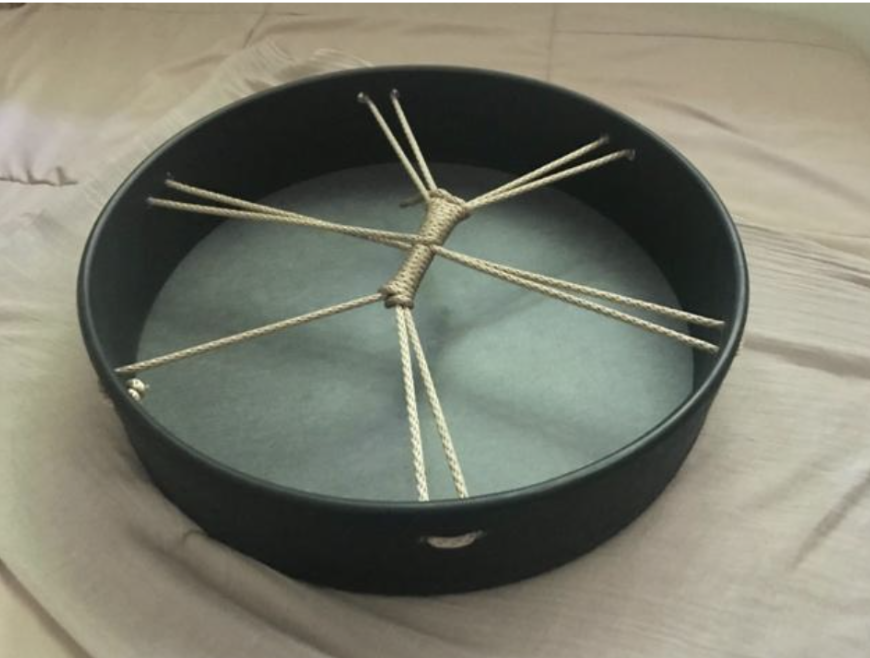3A SOUNDWALK SERIES: Wapato Island Farm by Gerardo Calderon
Wapato Island Farm, Sauvie Island
July 8, 2023
“I went to Wapato Island Farm to meet Jennifer, with no expectations… I could not believe how much peace I felt as soon as I entered the farm, it was a great feeling coming out of this land that made me feel calm, no rush, no words to describe my feelings.”
—Gerardo Calderon
Quick Facts About the Soundwalk
It takes about 40 minutes to complete this soundwalk.
There is no specific route for this soundwalk. Feel free to wander wherever the music takes you!
This soundwalk requires headphones and a device to play the audio (such as a smartphone or mp3 player).
The audio file is available two ways starting July 7:
A high-quality .WAV file downloaded through Google Drive
Streamed directly from this webpage
The farm may have spotty cell service depending on your provider, so downloading the soundwalk ahead of time is recommended.
Download The SOundwalk Here:
Note: File may take extra time to download due to its size
-
Sauvie Island, historically known as Wapato Island or Wappatoe Island, is the largest island along the Columbia River and is one of the largest river islands in the United States. A tribe of the Chinook Nation known as the Multnomah were among the original inhabitants of the island.
The island was known for its abundant marsh resources, including Wapato, a highly valued edible root, which grew there in large quantities. Sometimes called the Indian Potato, this tuber was a staple food for those living on the island. Wapato was roasted, stored via drying, and used as a trading commodity between the Multnomah People and other nations and tribes.There are still patches of Wapato throughout the island today.
Multnomah was also the name of an Indian village once located on the upriver end of Sauvie Island facing the Columbia River. The name is from the Chinookan language and means ‘those toward water’. In this case toward the Columbia River. Of course, this word is prolific in the City of Portland where a county, a waterfall, a neighborhood of Portland, and streets, businesses, and organizations in Oregon have this same name.
After the decimation of the majority of the indigenous inhabitants on the island in the early 1830s due to diseases brought by the colonial settlers, the Hudson’s Bay Company sent one of its workers, Laurent Sauve dit Laplante, there to establish a dairy. His name soon became the name of the island. It is now predominantly farmland and a wildlife refuge and is a popular place for various activities such as bicycling, picking fruits and vegetables, kayaking, enjoying the beach, bird watching and many more recreational activities.
Wapato Island Farm, purchased 18 years ago by Jennifer Rose Marie Serna family, has chosen to pay tribute to the rich history of Sauvie Island by utilizing and teaching folk herbalism and indigenous farming practices to rediscover ancestral traditions and honor the Earth. It has become a place for gardening, community gathering, and apothecary. Wapato Island Farm offers a wide variety of opportunities to interact with the land, its plants, and its healing power. Their educational workshops, resources, skill-sharing and communal gatherings are centered around sharing the wisdom of plants and fungi, reconnecting with folk healing practices and growing cultural resiliency.
-
Jennifer Rose Marie Serna is a Latina folk herbalist, mother, regenerative farmer, land activist, skilled educator, and owner of Wapato Island Farm.
Learning from her great abuelita, Grandma Mary, a Mexican yerbatera and family matriarch, Jennifer began her journey with plant wisdom, healing, and food as nourishment at a young age. She has been learning herbalism for most of her life, which has deepened and grown into a practice of curandera, ancestral healing, and folk tradition practices with food, medicine, and deep soul work.
Jennifer’s vision is to continue supporting BIPOC communities within the framework of healing justice, identifying holistic responses to generational trauma and violence. Currently, the farm is focused on working with migrant field workers and black + indigenous farmers to reimagine and build new food systems that foster food sovereignty within these communities.
Jennifer is dedicated to honoring and protecting this sacred land she tends with her family and the people that come to Wapato Island Farm for healing, learning, medicine, and wisdom.
-
I went to Wapato Island Farm to meet Jennifer, with no expectations. It was the first time I went to Wapato Island Farm. I could not believe how much peace I felt as soon as I entered the farm, it was a great feeling coming out of this land that made me feel calm, no rush, no words to describe my feelings. I walked to this little room full of herbs and all kinds of aromas, and there she was Jennifer waiting for us (me and Third Angle New Music team; Carissa Burkett and Sarah Tiedemann). Soon enough I knew that Jennifer was the one with all this harmonious energy that created a total calmness. We talked with Jennifer for a little bit and then, we went for a walk in the farm. Jennifer explained to us all about the farm, and referred to specific areas that for her are important. Before we close our meeting, I asked Jennifer if she would be willing to let me record her voice to tell the story about the farm and she accepted.
It took me few days to process all the information I gathered, and my feelings about the farm. There was only one thing I knew, Carissa asked me to use my traditional instruments; flutes, drums, and strings, to compose the music. I decided to compose and record as organically as possible. I told Jennifer that I want to come to the farm and record her voice, so we did it. At our last day of recording her voice I went for a walk in the farm, I captured/ recorded interesting sounds of birds, wind, bees, flowers dancing/moving because the wind. You are going to hear all kinds of natural sounds.
I also asked Eleanor and Jessie to record their voices outdoors, so we could capture the sounds of nature and people. When I composed and recorded the music, I knew I didn’t want to use too many effects neither too much EQ. The result is what you are going to hear. In the audio, Jennifer will guide you to enter to her world. I hope you enjoy the farm, the walk, and the energy of the Wapato Island Farm.
Instruments used in the soundwalk
Native American Flutes
Conch Shell – Tecciztli
Tarahumara Drum - Mexico
Rain Stick – Chicahuaztli - Mexico
Maracas Chamula – México
Clay Flute (replica) - Mexico
Antara – Bamboo Flute
Tambor de Agua – Water Drum – Mexico
Bird Feathers
Wind Whistles (replicas) - Mexico
Tenabaris – Butterfly Cacoons – Mexico
Native American Drum
Directions to Wapato Island Farm
Credits
Voice over:
Jennifer Rose Marie Serna -Thanks to Jenny for giving me the honor to audio record her voice to tell me stories, feelings, and commitment about the Wapato Island Farm. Gracias infinitas.
Jessie Marquez - Jessie is a great jazz singer and an excellent storyteller.
Eleanor Amoros - Actress, mother, and a great friend.
Thanks to my good friend and colleague Munaya T’ika, from Cochabamba, Bolivia for giving me permission to use her composition “Canto a las Aves.”
















